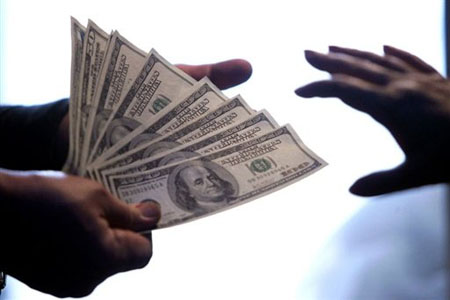Alcohol Research Awash in Industry Money
 Even the most careful research can be undone by bias, and history teaches that industry funding does not encourage the most careful research. From the Tobacco Institute to a half a century of sugar industry-fueled misdirection, financial might has repeatedly trumped scientific rigor in health research. Dr. Michael Siegel, Professor of Community Health Sciences at Boston University School of Public Health, is quick to call out the same dynamics with Big Alcohol.
Even the most careful research can be undone by bias, and history teaches that industry funding does not encourage the most careful research. From the Tobacco Institute to a half a century of sugar industry-fueled misdirection, financial might has repeatedly trumped scientific rigor in health research. Dr. Michael Siegel, Professor of Community Health Sciences at Boston University School of Public Health, is quick to call out the same dynamics with Big Alcohol.
Most recently, he has shone light on the International Scientific Forum on Alcohol Research (ISFAR), an invitation-only group of alcohol researchers centered in part at Dr. Siegel’s own BU—and underwritten by the alcohol industry. Dr. Siegel first began looking into ISFAR when they critiqued a landmark meta-analysis that challenged the “j-curve” theory—namely, that people who drink “moderate” amounts of alcohol have better cardiovascular health outcomes than either overconsumers or abstainers. Needless to say, this factoid is a cornerstone of the industry’s campaign to legitimize and encourage daily consumption. Big Alcohol would feel obligated to reject anything undermining “health drinking” messages emphatically, and ISFAR rode into the breach. Conveniently, the organization’s published critique omitted any reference to industry funding for itself and its constituent members.
A growing body of scientific evidence shows that the source of funding can bias research, even when the researchers are ostensibly independent. For this reason, scientific transparency advocates push for disclosure of funding soures. With that in mind, Dr. Siegel revisited the ISFAR controversy to see if they had moved towards open disclosure of industry underwriting.
He found they had, in fact, worked harder to hide them. An ISFAR member was recently forced to correct an academic article for failing to disclose that he was a consultant for the beer industry. Multiple biographies for members either obscure or outright omit industry ties—Dr. Siegel notes a total of 10 members had possible conflicts of interest.
“You want to think that scientists are trying their hardest during difficult times,” said Carson Benowitz-Fredericks, Research Manager for Alcohol Justice. “The excuse is so often, ‘Well, if the industry didn’t fund alcohol research, who would?’ But when you see organizations taking pains to hide financial ties, it makes you realize how quickly that attitude turns into something darker.”
In his piece, Dr. Siegel notes the complicity of his own institution, and calls for ISFAR to be shuttered. “The time to end this scam operation is now,” Dr. Siegel writes. “Especially in a period in which the federal government has basically tossed scientific objectivity out the window.”
“Alcohol Justice is happy to join the choir calling for healthy skepticism,” said Benowitz-Fredericks. “We stand firmly behind Dr. Siegel as he shines a light on this dark corner of drug research.”
READ MORE about Big Alcohol’s deceptive claims of healthy drinking.
Help us hold Big Alcohol accountable for the harm its products cause.
| GET ACTION ALERTS AND eNEWS |
STAY CONNECTED    |
CONTACT US 24 Belvedere St. San Rafael, CA 94901 415-456-5692 |
SUPPORT US Terms of Service & Privacy Policy |


